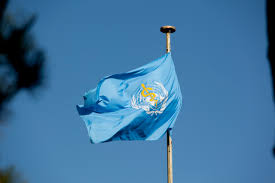The World Health Organization is a government agency within the United Nations that maintains its own reference guide of diseases called the International Classification of Diseases, which is currently in the 11th edition. Often abbreviated to ICD and followed by whatever edition the copy is like this – ICD-11 – the International Classification of Diseases was announced by the World Health Organization earlier this week that it would contain a few brand-new diseases and a variety of new-and-improved definitions.
One of the most recent additions to the handbook is the diagnosis of burn-out, which is categorized under QD85 as a syndrome, which is a collection of symptoms, that often ends up happening from unmanaged stress stemming from the workplace. In order to have burn-out, per the ICD-11, you must have: a feeling of being exhausted or otherwise having your body’s energy depleted; not be as mentally interested, invested, or as close to your job as you used to be, or have bad feelings toward your job like negativity; and a lowered sense of efficacy in your professional life.
“QD85 Burn-out,” as the new syndrome is called, is only supposed to be applied to such symptoms that stem from one’s place of work or occupation – never any “other areas of life.”
To be clear, burn-out, which can also acceptably be spelled as burnout, was mentioned in the last International Classification of Diseases edition, ICD-10, though it only had the definition of one being in a “state of vital exhaustion.”
In the past, according to the Germany sociologist Torsten Voigt at RWTH Aachen University, people who suffered from burnout were not as likely to feel like their conditions were legitimate. With the new version of the ICD coming out, Mr. Voigt believes that they will “finally [be] fully recognized as having a severe issue.
Keep in mind that the World Health Organization only has jurisdiction in certain parts of the world, of which the United States is not a member of. However, people in many European countries who suffer from burnout will find it nearly infinitely easier to get help for the issue.
In the future, says the World Health Organization, the United Nations’ international governmental agency will likely come up with a few guidelines, each of which is based on evidence, to help people maintain a sense of mental well-being while working.



